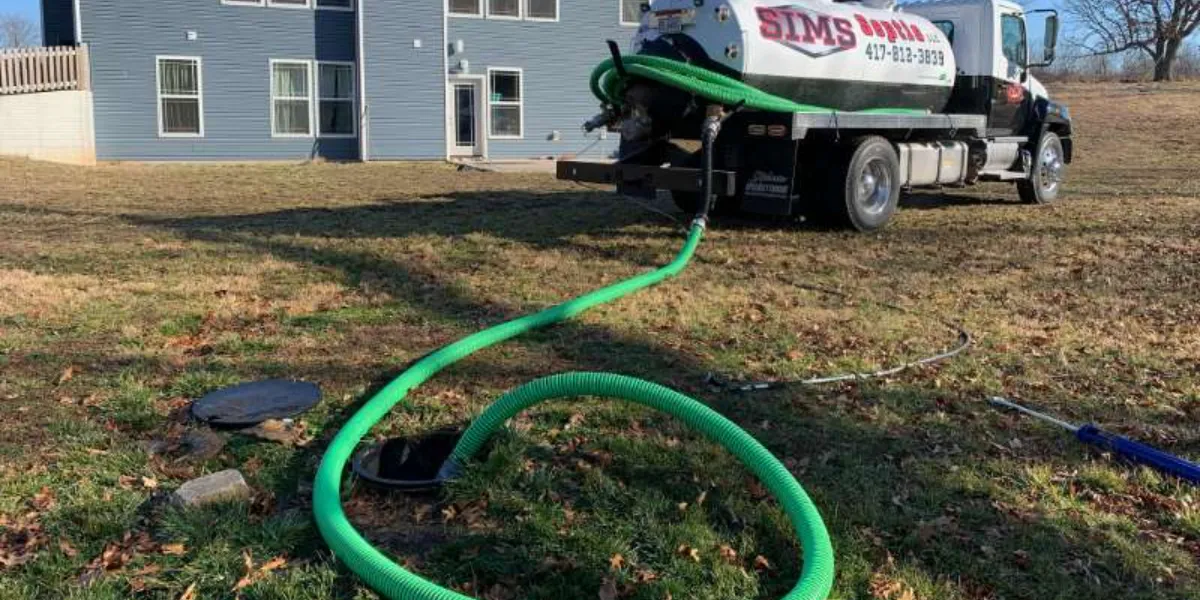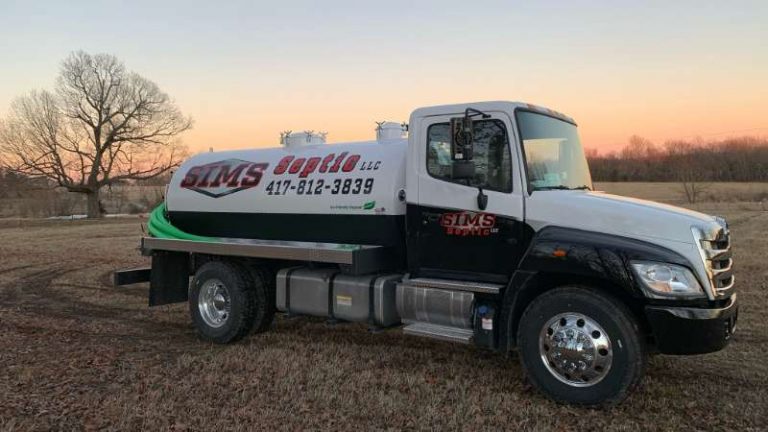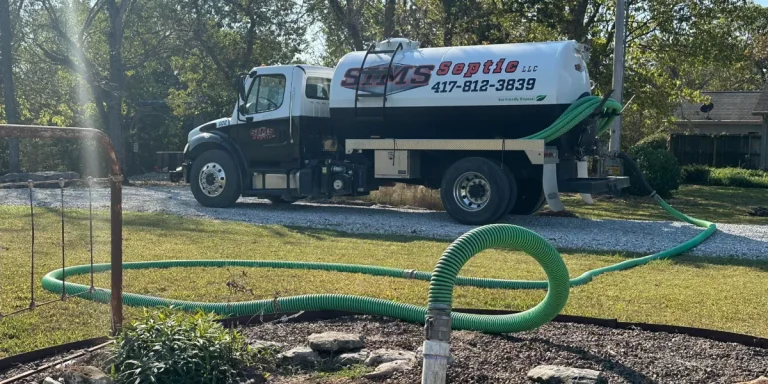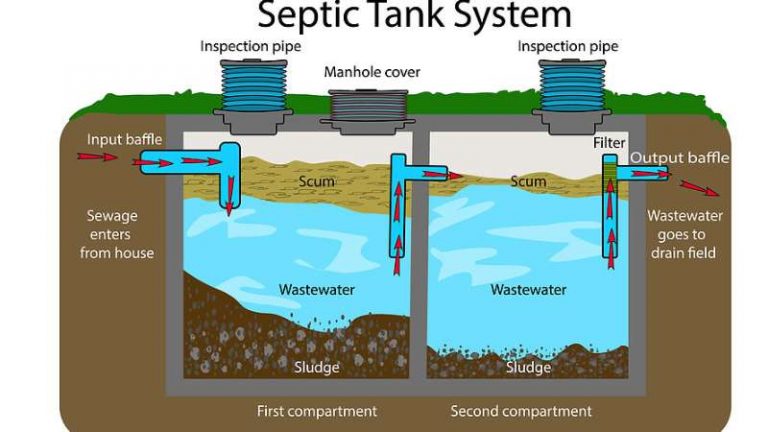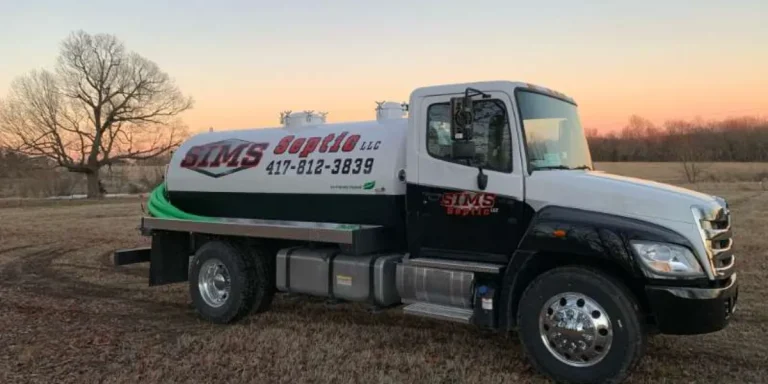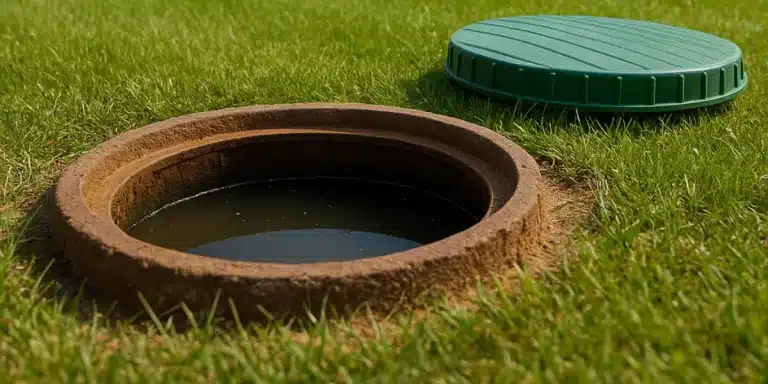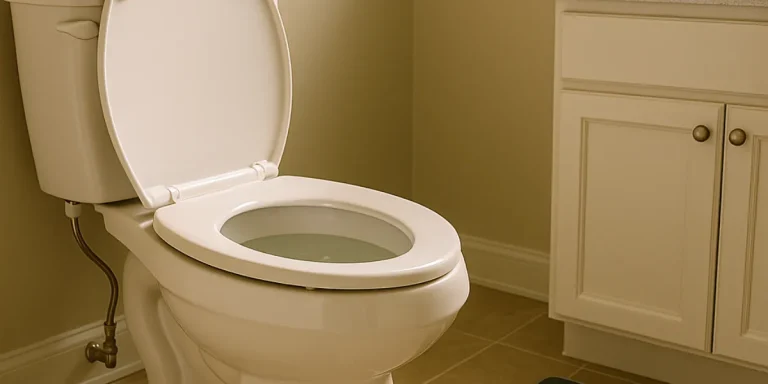Why Is My Septic Tank Backing Up After Heavy Rain?
Heavy rain can do more than flood your lawn—it can flood your septic system too. If you’ve noticed slow drains, foul odors, or even sewage backing up into your home after a storm, you're not alone. At Sims Septic, we often respond to service calls across Everton and the surrounding areas for this exact issue. Let’s break down why it happens, what you can do, and how we can help.
How heavy rain affects your septic system
Septic systems are designed to manage household wastewater by slowly releasing it into the surrounding soil through a component called the drain field. Under normal conditions, the soil filters and treats the waste naturally. But after prolonged or heavy rain, that balance is disrupted.
When the ground becomes fully saturated, the soil can't absorb any more water—especially not wastewater. This leads to system slowdowns, backups, and other issues that many homeowners in Southwest Missouri experience after storms.
Here are the most common ways heavy rain affects your septic system:
Saturated drain field
-
- The drain field can’t disperse effluent when the soil is waterlogged
- Wastewater begins to collect in the system with nowhere to go
- This can result in slow drains, tank overflows, or sewage backups inside your home
Surface water intrusion
-
- Rainwater may enter the septic tank through unsealed risers or cracked lids
- Poor grading around the tank directs surface runoff into the system
- Added water volume dilutes waste and overburdens the tank
Clogged or failing drain field
-
- Minor clogs from grease, solids, or tree roots are worsened by excess water
- Saturated soil reduces the soil’s ability to filter and process wastewater
- Older or neglected systems are more prone to failure during storms
Rising water table
-
- Missouri's low-lying or flood-prone areas see spikes in groundwater levels
- A high water table can rise above the drain field, halting proper drainage
- Effluent can’t flow out, forcing it back into the tank or up through your plumbing
What to watch for—and what to do if your septic system backs up
After heavy rain, your septic system may give you early warning signs that it’s struggling to function properly. Catching these signs early can help prevent serious damage to your home and avoid costly repairs.
Common signs your septic system is overwhelmed
Be alert for the following issues in the hours and days after a storm:
-
- Standing water near the septic tank or drain field, even when the rest of your yard is dry
- Soft, spongy ground over or around the drain field
- Gurgling sounds in toilets, bathtubs, or sinks when other fixtures are used
- Unpleasant sewage odors inside your home or in the yard
- Slow drains in multiple fixtures, especially on lower levels of your home
- Water backing up into showers, tubs, or floor drains
These symptoms typically indicate that the drain field is waterlogged, the tank is overfilled, or rainwater has entered the system. In any case, it’s important to take action quickly.
Steps to take if your system backs up
If you notice any of these red flags after a storm, here’s what you should do immediately:
-
- Stop using water inside your home. Avoid showers, laundry, flushing toilets, and using the dishwasher. Every gallon you add can make the situation worse.
- Check the yard conditions. If the area around your septic tank or drain field is still flooded, avoid opening or pumping the tank. Doing so under these conditions could cause the tank to shift or float, damaging your entire system.
- Call a licensed septic professional. A qualified technician can determine whether the problem is in the tank, the drain field, or both—and identify the safest course of action.
At Sims Septic, we specialize in fast, reliable septic system service during and after heavy rain. Our team can:
-
- Perform emergency septic tank pumping to relieve pressure and prevent overflows
- Conduct septic inspections to diagnose the issue and assess drain field health
- Replace or clean septic tank filters that may be clogged with debris
- Evaluate whether your system needs drain field repairs or upgrades
We serve homeowners across Southwest Missouri with honest advice, affordable pricing, and solutions that work.
How we help customers in Southwest Missouri
A homeowner in Willard noticed their bathtub gurgling and a bad smell coming from the backyard after three days of rain. We arrived promptly, performed an inspection, and found that their riser lid wasn’t sealed properly, allowing surface water to enter the tank. We replaced the seal, pumped the system, and advised them on grading improvements. The backup hasn’t returned since.
Our trained team knows how to handle weather-related septic issues safely and thoroughly.
Service areas we cover
Sims Septic proudly serves customers in:
If you’re located in or near any of these areas, we’re just a phone call away.
Get help before things get worse
Don’t wait until sewage is coming up your drains.
Call Sims Septic today or request an estimate online. We’ll inspect your system, identify the problem, and provide a fast, reliable solution. Our local team understands the soil, the weather, and the systems in Southwest Missouri—because we live and work here too.
Need help in Everton or a nearby town? Trust Sims Septic to handle your septic issues with professionalism and care.

